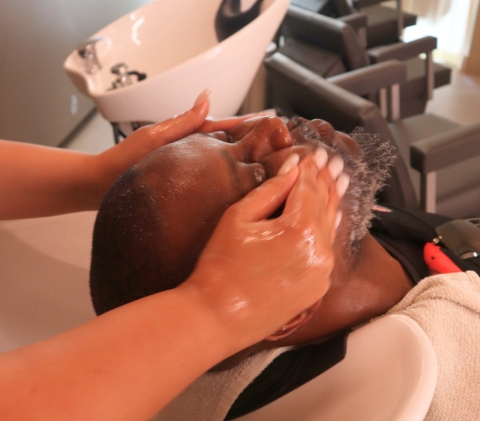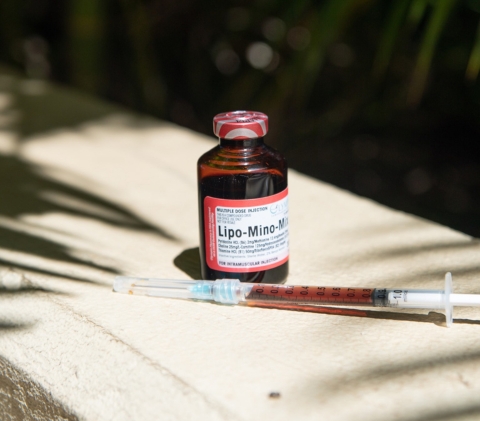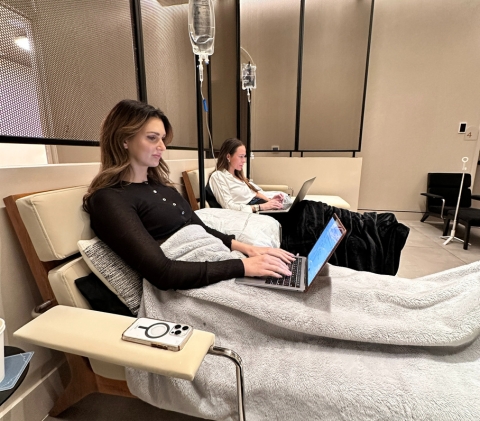How to Defeat Seasonal Allergies: 8 Simple Ways To Beat The Symptoms
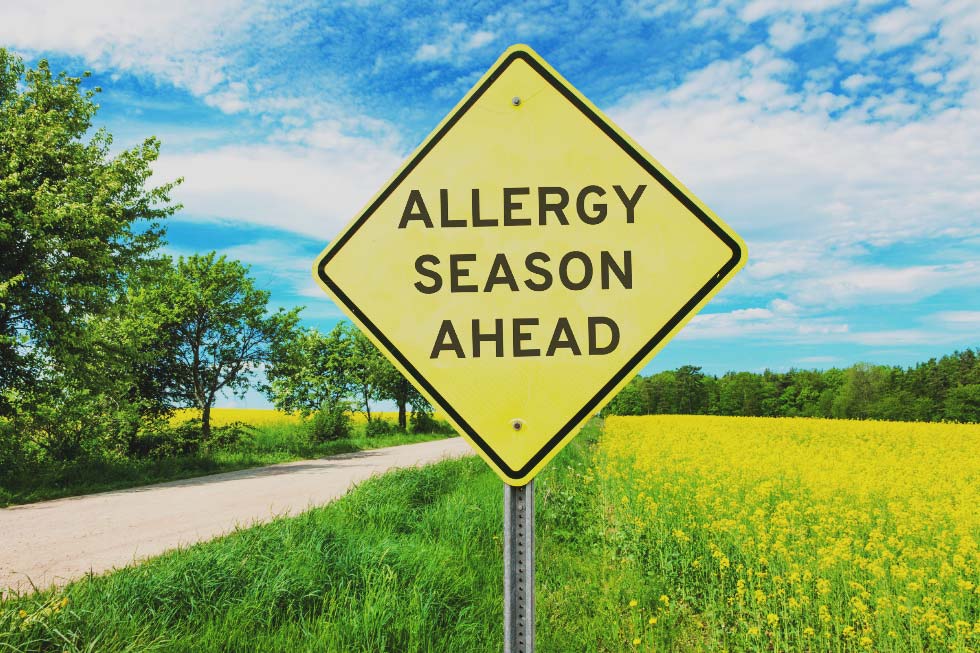
We all know that spring brings blooming flowers and warmer weather, but it also brings seasonal allergies for many. Sneezing, itching, and congestion can be bothersome, but with the right strategies, you can manage and alleviate your symptoms.
In this blog, we’ll explore simple yet effective ways to beat seasonal allergies and enjoy the season to the fullest.
What Causes Seasonal Allergies?
Seasonal allergies, or hay fever, are primarily caused by pollen from trees, grasses, and weeds. When these allergens are inhaled, the immune system of sensitive individuals overreacts. This will trigger the release of histamine and other chemicals that lead to allergy symptoms such as sneezing, runny or stuffy nose, itchy eyes, and throat irritation. Factors like mold spores and outdoor air pollution can also contribute to seasonal allergies.
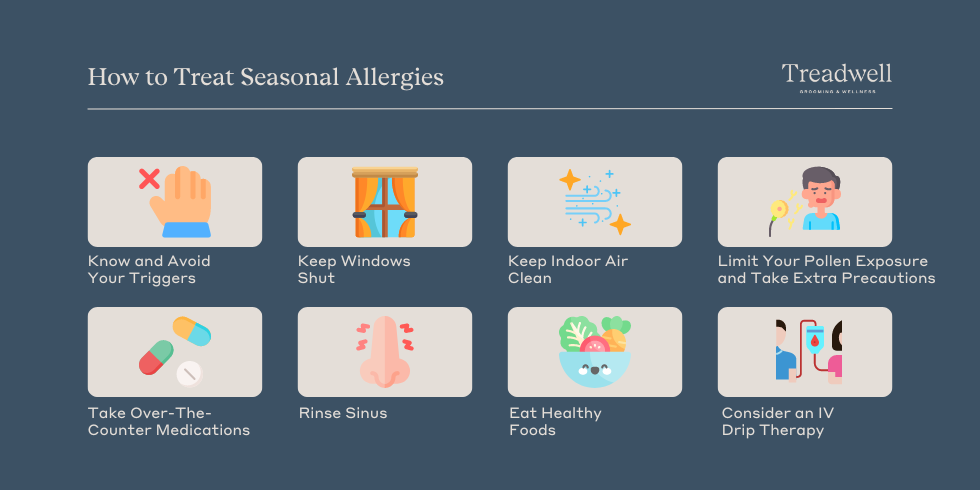
How to Treat Seasonal Allergies
1. Know and Avoid Your Triggers
Identify the specific allergens that trigger your seasonal allergies, such as pollen, mold, or pet dander. Once you know your triggers, take steps to avoid them. For example, if pollen is a trigger, check local pollen forecasts and stay indoors when pollen levels are high. Avoid outdoor activities during peak pollen times, such as early morning and late afternoon.
2. Keep Windows Shut
Remember to keep windows closed during allergy seasons to prevent allergens from entering your home. Use air conditioning for ventilation, as air conditioners can filter out allergens. If you need to ventilate your home, consider using HEPA filters in your windows or window screens to keep pollen out.
3. Keep Indoor Air Clean
You can use an air purifier to remove allergens and clean indoor air. Place air purifiers in commonly used areas of your home, such as the bedroom and living room, to reduce exposure to allergens. Additionally, regularly vacuum and dust your home to remove allergens from surfaces. You can use a vacuum cleaner with a HEPA filter to trap allergens and prevent them from being redistributed into the air.
4. Limit Your Pollen Exposure and Take Extra Precautions
Stay indoors during dry, windy days when pollen counts are typically higher. If you need to go outside, wear sunglasses and a hat to protect your eyes and face from pollen. Make sure to change your clothes and shower after spending time outdoors. This is a simple tip to remove pollen from your skin and hair. Consider using a pollen mask to reduce pollen exposure when doing outdoor activities, such as gardening or lawn mowing.
5. Take Over-The-Counter Medications
Over-the-counter allergy medications can help alleviate sneezing, itching, and congestion. Nasal sprays, antihistamines and decongestants are commonly used to treat seasonal allergies. An antihistamine works by blocking the histamine. It is a chemical released by your immune system in response to allergens. Decongestants help reduce nasal congestion by shrinking swollen blood vessels in the nasal passages. Nasal sprays can help relieve congestion and nasal symptoms.
6. Rinse Sinus
Rinsing your sinus with a saline solution can help flush out allergens and mucus, relieving nasal congestion and irritation. Use a saline nasal rinse to irrigate your nasal passages with saline solution. This can help clear mucus and allergens, reduce inflammation, and alleviate the symptoms. Be sure to use distilled or sterile water when preparing a saline solution to avoid the risk of infection.
7. Eat Healthy Foods
Eating a balanced diet can support your immune system, reduce inflammation and help alleviate allergy symptoms. Foods such as fruits that are high in vitamin C can act as natural antihistamines and help reduce allergy symptoms. Omega-3 fatty acid foods like fish are anti-inflammatory and may help alleviate allergic reactions. Avoiding processed foods, sugary snacks, and excessive alcohol consumption can also help support overall health and immune function.
8. Consider an IV Drip Therapy
IV drip therapy, or intravenous therapy, delivers a customized blend of vitamins, minerals, antioxidants, and hydration directly into your bloodstream. This can help boost your immune system and alleviate allergy symptoms more effectively than oral supplements.
IV drip therapy can address specific allergies and symptoms, providing targeted relief. IV therapy ensures maximum absorption of nutrients, resulting in faster and more noticeable results. Talk to a healthcare provider or wellness center to discuss whether IV drip therapy suits your seasonal allergies.
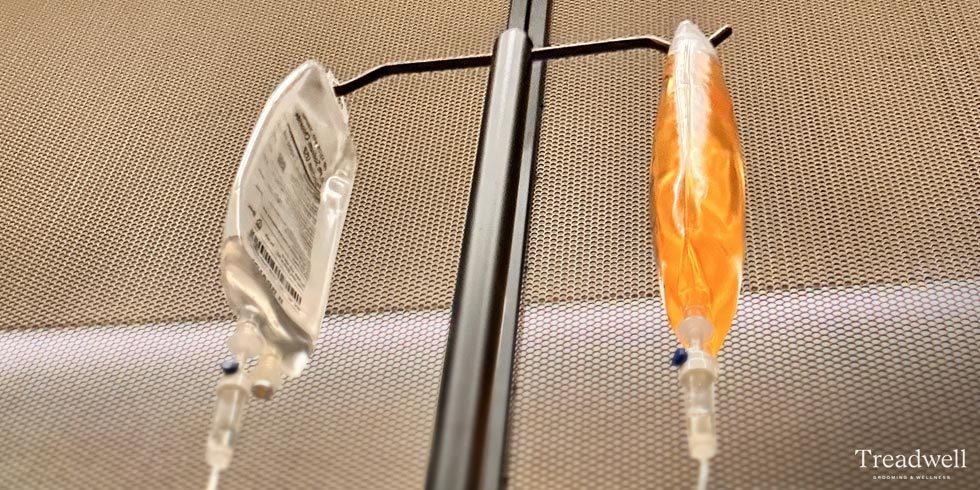
Treadwell IV Drip Therapy – A Must Try
At Treadwell, we offer a comprehensive range of IV drip therapy treatments tailored to address various health concerns, including the Immune Max Drip, designed to enhance immune function and fortify your body against illness. Our expert medical staff deliver IV therapy with precision and care, ensuring maximum absorption of essential nutrients and hydration. Located in Houston, our clinic provides convenient access to cutting-edge IV therapy services, empowering clients to optimize their health and well-being. Experience the difference with Treadwell IV Drip Therapy and discover the transformative benefits of personalized IV therapy Houston.

FAQs
Seasonal allergies last as long as the allergen is present in the environment. Depending on the allergen, symptoms may persist for weeks or even months.
Over-the-counter allergy medications are generally safe for short-term use. However, prolonged or excessive use may lead to side effects.
IV drip therapy for seasonal allergies can provide rapid relief by directly delivering a potent blend of vitamins and minerals into the bloodstream. This helps strengthen the immune system, reduce inflammation, and alleviate allergy symptoms more effectively than oral medications.
